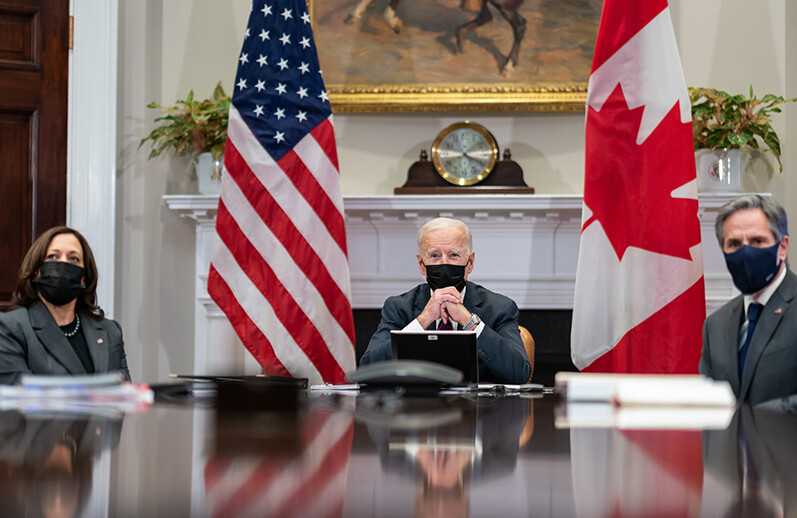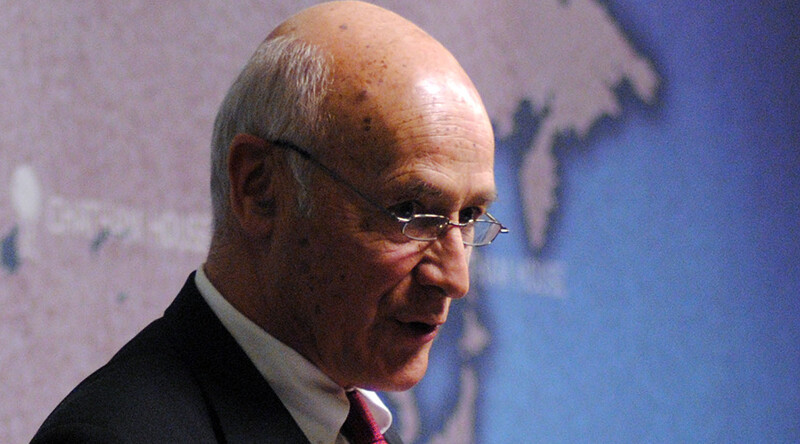This article first appeared on the Ethics & International Affairs blog.
The Biden/Harris administration has released its interim national security strategic guidance, which is meant to supersede the Trump/Pence administration's 2017 National Security Strategy in providing direction to the executive departments and agencies of the U.S. government. For the past three years, the program on U.S. global engagement has focused on the question of overarching narratives that explain and situate the U.S. role in the world. What narrative strands can we see in the interim guidance?
- The strategic guidance explicitly rejects the "restorationist" narrative by bluntly stating that there is no return to the international situation or to the way U.S. foreign policy was configured prior to 2016. Instead, this document posits a forward-looking approach to take into account the changed international and domestic conditions of the 2020s.
- The retrenchment and transactionalist narratives which figured so prominently in the 2017 National Security Strategy are downplayed and in some cases explicitly rejected. In contrast to the "America First" bumper sticker, the Biden/Harris guidance plays up the value and importance of alliances and partnerships. Here, we see a clear alignment with the approach that Carnegie Council speakers like Ash Jain have noted: forging partnerships with other democratic countries (including the call for a democracy summit) to tackle pressing global and regional issues. Indeed, of the narratives the Carnegie Council report chronicled, the interim guidance is permeated with the "democratic community" theme.
- However, one can see the impact of the 2016 break in the old bipartisan consensus. In releasing this guidance, some of the statements coming out of the administration make clear that U.S involvement in world affairs is not a matter of playing the great game on the grand chessboard, but that strategy must serve the foreign policy interests of the nation, which in turn are directly connected to improving outcomes for America's working families and the middle class. This linkage is made explicit in the document. A parallel narrative is also clear in the text, one which members of Congress with whom I had the opportunity to meet and discuss these issues in the context of an Aspen Institute seminar expressed and is encapsulated in the "regeneration" narrative: that for America to continue to play a leading role in the world, it must first reconstruct and improve its domestic institutions and economy.
- Finally, the parameters of an emerging climate change narrative are sketched out. As my colleague Derek Reveron notes, this guidance contains formal recognition that "the biggest threats we face respect no borders or walls, and must be met with collective action. Pandemics and other biological risks, the escalating climate crisis, cyber and digital threats …"
So, the guidance attempts to blend the democratic community, regeneration and climate narratives into an integrated whole, but with elements of "great power competition" still strongly present. Is this going to create a harmonious hybrid that lays the basis for concerted action, or will the interim guidance pull policy in different, competing directions?


